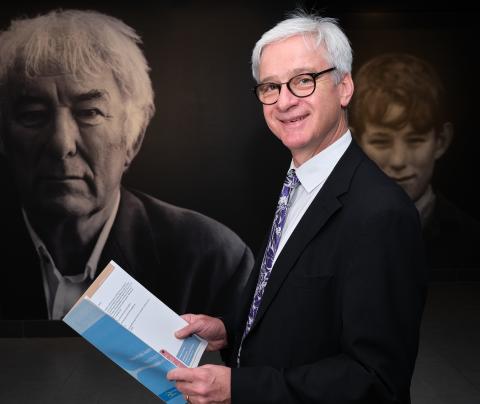Strong partnerships required to tackle health inequalities

The need to put strong partnership working at the centre of public health is the central focus of the Director of Public Health’s Annual Report, published today.
Speaking at the launch in Bellaghy, Dr Adrian Mairs, Acting Director of Public Health at the Public Health Agency (PHA), said: “One of the key challenges facing us as a society is health inequality. This is a complex issue that involves many different and interwoven factors, including childhood development, deprivation, the social and physical environment, and education. This means the response needs to be collaborative and results can only be achieved through effective partnership working.
“We know that substantial differences exist between the health of those who live in the most and the least deprived areas, known as the health inequality gap. For males, the life expectancy inequality gap is 7.1 years, and for females it is 4.5 years. Even within this, we can see inequality – in the most deprived areas, males can expect to live 68% of their lives in good health, compared with 79% in the least derived areas. For females the difference is more stark, with those in the most deprived areas expecting to live 64% of their lives in good health, compared with 78% in the least deprived areas.
“To tackle this inequality and improve health and wellbeing across our communities, we need to empower people from an early age by providing the knowledge and skills required to enable them to take care of their own physical and psychological health, and provide a social, physical and economic environment that enables this.
“Partnership underpins the ‘Making Life Better’ strategic framework for public health and has defined the work of the PHA since its formation a decade ago. New opportunities, including Community Planning and the Protect Life 2 suicide prevention strategy, give us the chance to expand how we work in partnership across all sectors to improve the health and wellbeing of everyone who lives here.”
The report highlights some of the ‘Public Health in Partnership’ work that has taken place across Northern Ireland in 2018, demonstrating the breadth and depth of collaborative working across the service and the region. Included are programmes aimed at giving children the best start in life such as: the comprehensive work to tackle antimicrobial resistance in secondary care; equipping them through life with projects such as THRiVE which aims to improve outcomes for children and young people in Rathcoole and Monkstown; empowering healthy living with campaigns such as ‘#hackthepain’, a social media campaign for supported pain self-management; creating the conditions for good health with the cervical screening social media campaign; empowering communities with such projects as the Twilight Arts and Wellbeing project, a regional arts project for looked after young people in residential care settings; and developing collaboration through projects such as the Cross-border Healthcare Intervention Trials in Ireland Network (CHITIN).
The report is available at www.pha.site/dph18
